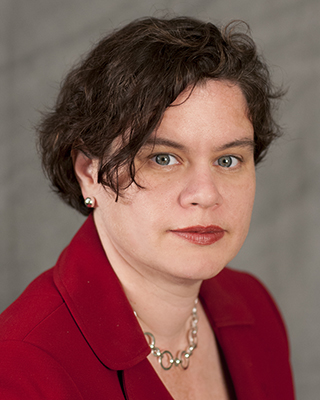February 26, 2013, 1:30 – 3:30 p.m., Foster Auditorium (and via Media Site Live)
Ellysa Stern Cahoy, ” Grant Seeking: Tackling the Essential Questions”
Procuring an internal or external grant is a terrific way to move an initiative or research project forward, quickly bypassing traditional funding obstacles. Before you apply for a grant, however, you must consider a number of questions relative to your workload, research agenda, collaborative partnerships, and overall goals. This presentation will work through these essential questions, providing a roadmap for dynamic decision making that will help librarians know when it is the right time to seek grant funding, and how to easily and effectively begin the grant seeking process. Ellysa Stern Cahoy is an education and behavioral sciences librarian in the Penn State University Libraries, University Park. In 2012, she was awarded a $143,000 grant from the Andrew W. Mellon Foundation to fund the exploration of faculty’s personal scholarly archiving practices and needs.
Bonnie Imler, “Why Are Our Students Printing Abstracts Instead of Full-Text Articles?”
The impetus for this study was piles of orphaned abstracts at library printers and a previous study on SFX usage, in which a large number of student participants printed abstracts when instructed to print entire articles. In this quantitative study, 40 undergraduate participants were asked to print entire articles from 5 commercial library databases, and were surveyed on their understanding of the terms “abstract,” “full-text,” and “pdf.” Bonnie Imler is head librarian at Penn State Altoona. Her research interest is in actual student use of library technologies and screen capture software. Recent publications with co-researcher Michelle Eichelberger include “Using Screen Capture to Study User Research Behavior” in Library Hi Tech and “Do They ‘Get It’? Student Usage of SFX Citation Linking Software” in College & Research Libraries. The results of this study have been accepted for publication and are available on the College & Research Libraries pre-print web site.
Henry Pisciotta, “Researching ‘Art’s Critique of the Library'”
Henry Pisciotta’s 2009-2010 sabbatical research was an investigation of edgy or humorous artworks that criticize the basic principals of libraries. That work has been presented at 3 conferences, is the basis for a current exhibit in our Special Collections Library, and has been slowly wending toward publication. After identifying about 50 works, from 1960 to the present, that engage in this sort of institutional critique, some key themes emerged. Some of these artworks suggest that we have a cultural compulsion to see the library represent the interests of the community and to see the library as a site for complications of authorship and ownership. Others of these works urge us to regard with suspicion the order that characterizes a library and to ponder the relationship between order and disorder that seems integral to creative processes. The LFO Research Colloquium presentation will not present the results of this research but will instead informally discuss the processes involved, and perhaps some implications for librarianship. Librarians interested in this topic are urged to attend the more substantive talk that will be presented the evening before the colloquium (“Art’s Critique of the Library,” Monday, February 25, 6 p.m., in Foster Auditorium) and/or visit the exhibit in Special Collections (February 1 though May 31.) Henry Pisciotta is the Arts and Architecture Librarian at Penn State and in that capacity specializes in all aspects of the visual arts (including architecture, design, etc.) He holds master’s degrees in art history and library science and has completed the coursework toward a Ph.D. in art history. Most of his research and publication centers on arts librarianship (most recently a statistical study of university press publications in the arts) but he has also published research in art history, such as a 2001 study “The Avery Monument: The Elevation of Race in Public Sculpture and the Republican Party.” This research into the institutional critique of the library is his first foray in the study of contemporary art.
Lightning Talks
David P. Brennan, “eJournal Data Analysis to Support Decision-Making”
Making decisions regarding online journals requires an analysis of varied types of data from a number of sources. This talk will illustrate issues surrounding extracting, merging and analyzing a number of data points such as usage, cost, and interlibrary loan to support decision-making when negotiating renewals for online journals. Sources include Serials Solutions, ILLiad, and vendor supplied data. David Brennan is assistant librarian, Collection Development/Digital Resources Management at the George T. Harrell Health Sciences Library, Penn State College of Medicine, Hershey, Pennsylvania. He has more than 20 years experience in academic libraries both as a systems librarian (Clifford E. Barbour Library, Pittsburgh Theological Seminary) and as a library director (St. Francis Health System, Pittsburgh). He has presented at MLA and PaLA conferences and has published numerous articles on technology topics.
Amanda Clossen, “Flipping the Classroom: Collaborative Use of Learning Objects”
Amanda will be discussing her collaborative venture with English Department lecturer, Josephine Pirrone. The two have worked together to create a series of ENGL15 library sessions that work to present more abstract concepts of researching in class, while supporting the “nuts and bolts” of database searching through an online learning object. Amanda is the learning design librarian in the Library Learning Services department. Currently she is working to expand and support the creation of online learning objects and tutorials at Penn State University Libraries.





 Patrons browsing the Leisure Reading Collection in Pattee Library this month can check out one of the covered books (see above), and in the process, perhaps discover a new favorite author or genre.
Patrons browsing the Leisure Reading Collection in Pattee Library this month can check out one of the covered books (see above), and in the process, perhaps discover a new favorite author or genre.
